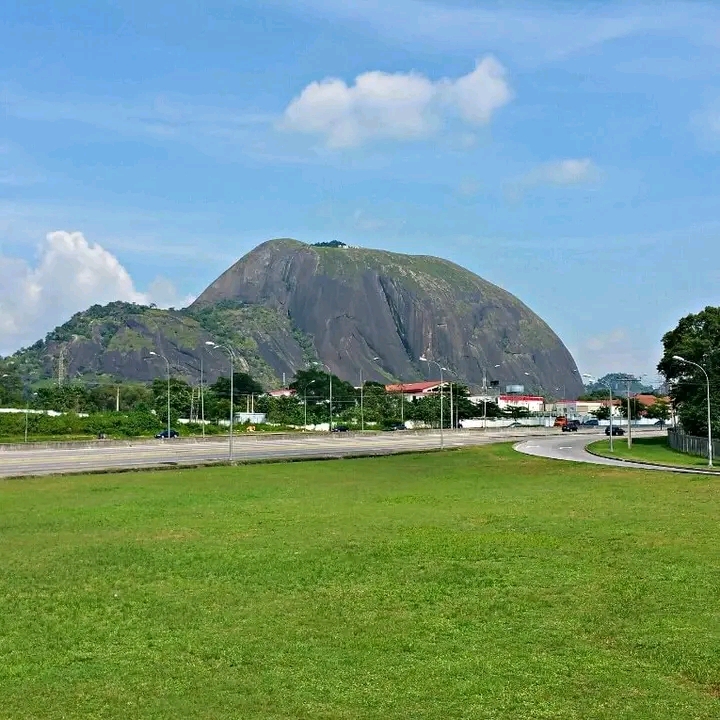
Conquer the Trails: Abuja International Hiking Festival Experience
The Abuja International Hiking Festival invites adventurers to explore vivid forest paths and rugged rock faces just outside Nigeria’s capital. This well-paced challenge offers breathtaking city views and a chance to connect deeply with the area's unique terrain and wildlife.
Start Early to Maximize Comfort
Begin your hike at sunrise to take advantage of cooler temperatures and avoid the midday heat that can intensify the exertion on exposed ridges.
Wear Sturdy Footwear
Choose hiking boots with good grip and ankle support to navigate the mixed rocky and dirt terrain safely and comfortably.
Hydrate Consistently
Bring at least two liters of water per person; dehydration risk increases during the dry season when natural water stops dry out.
Use Trail Maps and Stay on Marked Routes
Follow the provided festival maps or guides to avoid getting lost in forested sections and to protect local flora by staying on trails.
Conquer the Trails: Abuja International Hiking Festival Experience
Each year, the Abuja International Hiking Festival turns the Federal Capital Territory into a ground for exploration and grit. Spanning multiple routes carved through the unique rocky outcrops and shaded forests around Abuja, the festival draws both first-time hikers and seasoned trail veterans. The most popular trail runs approximately 12 kilometers with an elevation gain nearing 400 meters—moderate enough to challenge the average fitness level without demanding technical climbing skills.
The terrain is a mix of firm dirt paths, scattered granite boulders, and intermittent grassy clearings. Forests, not silent but alive with the chatter of birds and the rustling of leaves, stretch along the route, their branches occasionally parting to reveal sweeping views of the city skyline. The Zuma Rock, looming 725 meters above sea level, dares hikers from a distance, offering a silent challenge to those eager to push further.
Participants often set off early, when the rising sun drapes the trail in a temperate glow and the morning air pushes cool against the skin. Hydration remains critical: the dry season makes water sources scarce, so carrying at least two liters is advisable. Shoes with firm grip and ankle support handle the variable footing, from rocky inclines to smoother pathways. Layered clothing helps navigate the fluctuating temperatures from fuzzy dawn chills to midday warmth.
This festival isn’t a race but an engagement with a landscape fiercely itself. The wind whistles past ridges, encouraging persistence, while shaded spots offer moments of rest and quiet reflection. Safety briefings prior to the hike highlight areas where footing is tricky and the need for attentiveness around wildlife such as monkeys or colorful birds that dart along the trail.
For planning, the festival is best tackled between late November and early March, when the weather leans dry and cool. Festival organizers provide marked trails and guides, but it’s wise to come prepared with means of navigation and a basic first aid kit. The community vibe equips newcomers with support yet respects the individual challenge each hiker undertakes.
Whether you seek the thrill of the climb or the simple joy of being outdoors with others, Abuja’s International Hiking Festival balances that spirit with well-organized practicality. Step onto the trail and you’re not just walking—you’re joining a living, breathing interaction with one of Nigeria’s most distinctive natural spaces.
Nearby Trips
All Adventures
Boat Charters
Water Activities
Adventures near Abuja, Federal Capital Territory
Discover the unique and memorable adventures that make Abuja, Federal Capital Territory special.
Frequently Asked Questions
How physically demanding is the Abuja International Hiking Festival trail?
The trail is moderate; it requires steady walking over 12 kilometers with elevation gains of around 400 meters. It's suitable for those with average fitness but can be challenging for beginners without some preparation.
Are guides provided during the festival hike?
Yes, festival organizers provide certified guides familiar with the terrain to help navigate routes and ensure safety throughout the hike.
What wildlife might I encounter on the trails?
You may spot lively troops of monkeys, a variety of bird species including hornbills, and occasionally monitor lizards. Early mornings and late afternoons are best for wildlife observation.
Is the terrain suitable for children or older adults?
While children and seniors can participate, the uneven, rocky sections may require careful pacing and occasional rest. Choosing shorter, less steep segments is advisable for less experienced hikers.
Are there facilities along the trail, such as rest stops or water points?
The festival routes have designated rest areas, but potable water points can be limited, especially in the dry season, so carrying sufficient water is crucial.
What makes Abuja’s hiking festival distinct from others in Nigeria?
Abuja's festival combines urban proximity with unique granite rock formations, offering a blend of natural challenges and scenic city views uncommon elsewhere in the country.
Recommended Gear
Sturdy Hiking Boots
Provides necessary traction and ankle stability for rocky and varied terrain.
Hydration Pack or Water Bottles
Ensures hydration across dry, sunny conditions where water sources are scarce.
Lightweight Rain Jacket
Protects against sudden tropical downpours common in the wet season.
Wide-Brimmed Hat
Offers sun protection during exposed sections on the trail.
Local Insights
Hidden Gems
- "The hidden hanging gardens near the foot of Zuma Rock, a quiet spot few visitors reach."
- "A rarely visited viewpoint on the eastern ridge, offering unbroken panoramas of the FCT landscape."
Wildlife
- "Common monkeys that actively interact with hikers, adding liveliness to the trail."
- "A variety of birdlife including the African Green Pigeon and the colorful Greater Blue-eared Starling."
History
"The trails follow paths used traditionally by local communities, with Zuma Rock holding cultural significance as a protector figure in regional folklore."
